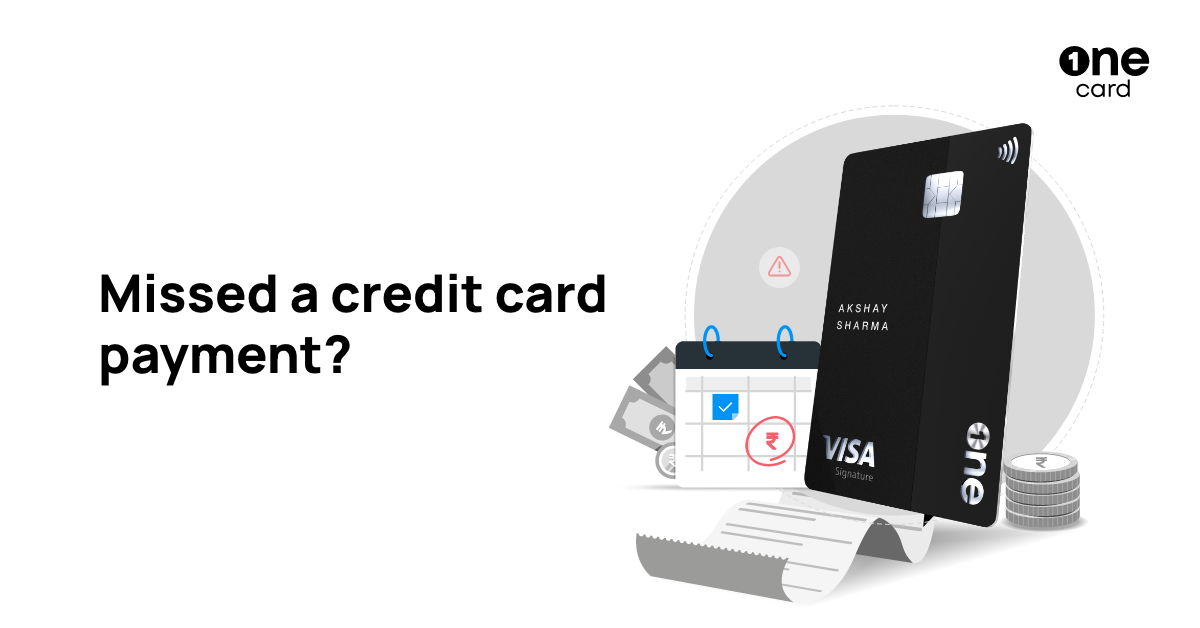Impact of Missing Credit Card Payment
By OneCard | November 14, 2022

Let’s understand why. Here are the short-term and long-term impacts of missing your credit card bill.
Table of contents:
1. It can lead to a debt trap:
Missing a payment on the due date will attract late payment fees and a high-interest rate on your total outstanding amount. This can lead to a debt trap if you don’t make timely payments.
2. It can bring down your credit score:
Your credit score might be affected if you don’t pay the bill in full on the due date.
But if you miss a credit card bill payment, the default remains in your credit report for longer.
3. It can have a negative impact on your loan or credit application:
It’s good to clear your dues on or before the due date, but if you miss doing this, your account runs the risk of going into default. However, you are still liable to pay the outstanding amount with interest. This takes a massive hit on your credit score and creates serious trouble during loan or credit card applications. Your application may be rejected, or you could be charged a heavy interest rate. This is because you carry the risk of default.
Additional Read:- Get a clear picture of your spends on OneCard
4. What if you cannot pay your bill immediately?
Use the following methods to avoid increasing your chances of default:
1. Convert into EMIs
If you are unable to pay your entire credit card bill by the due date, you can consider converting the balance into EMIs. You can decide the tenure according to your repayment capacity. The interest rate of such EMIs is usually lesser than penalty fees or finance charges you may incur.
Did you know that OneCard has an EMI option that lets you convert any transaction into easy EMIs? There is zero paperwork involved, and you can get started with a single click. You also get to select the tenure (3-24 months) according to your convenience.
2. Balance transfer
You can transfer the outstanding high-interest credit cards to other credit cards that have lower or nil interest rates.
3. Minimum Amount Due
Most credit card issuers let you pay about 5% of the outstanding balance as the minimum amount due. This helps you avoid the late payment fees, but there will be an interest charge levied on the outstanding amount.
4. Monitor your credit score
Using the simulator feature in the OneScore app, you can better understand how late payments or missed payments can affect your credit score. This will help you make better decisions.
If you are looking to get a credit card that you can easily track and manage, check out the mobile-first credit card - OneCard.

**Disclaimer: The information provided in this webpage does not, and is not intended to, constitute any kind of advice; instead, all the information available here is for general informational purposes only. FPL Technologies Private Limited and the author shall not be responsible for any direct/indirect/damages/loss incurred by the reader for making any decision based on the contents and information. Please consult your advisor before making any decision.
Sharing is caring 😉